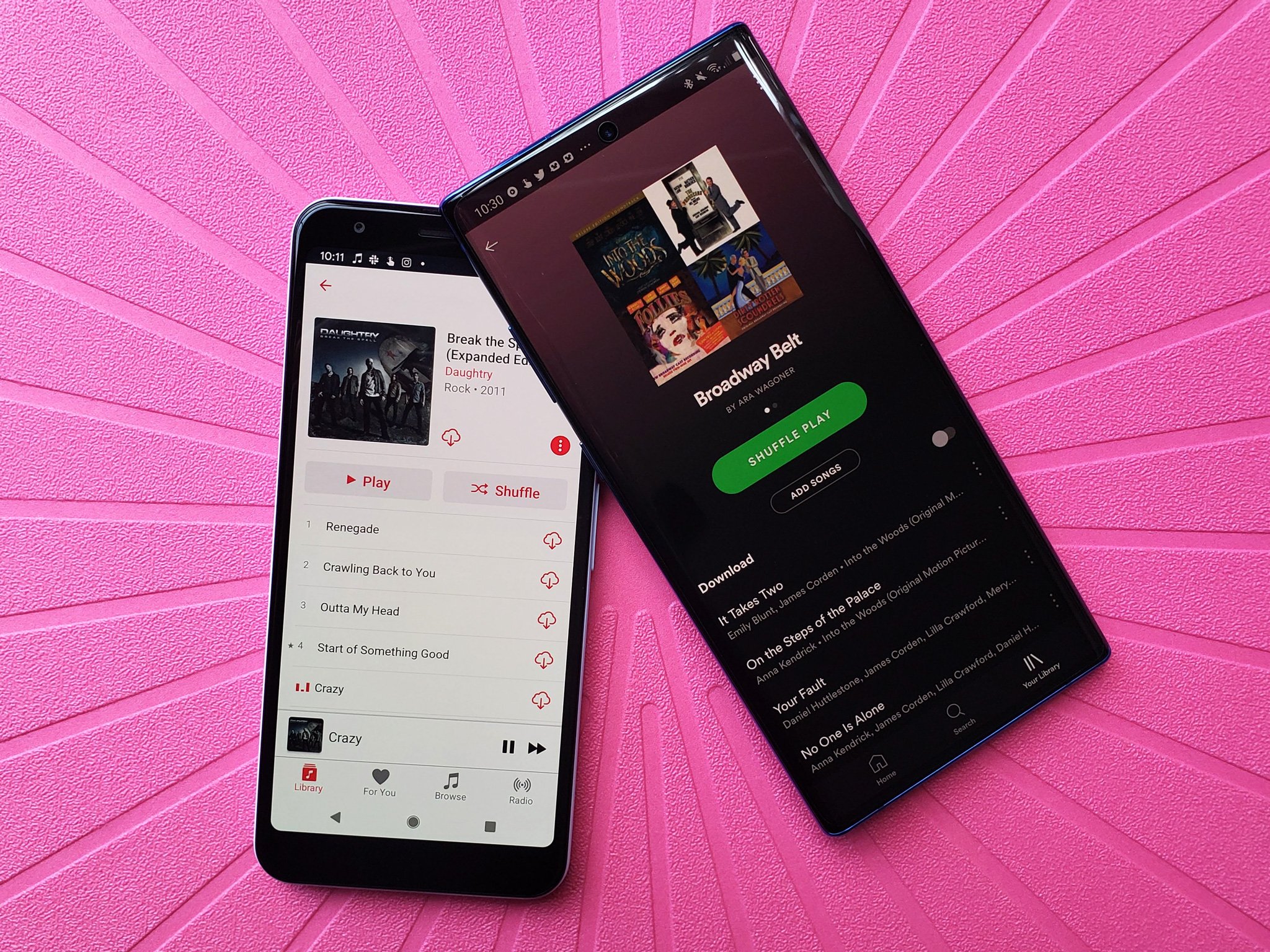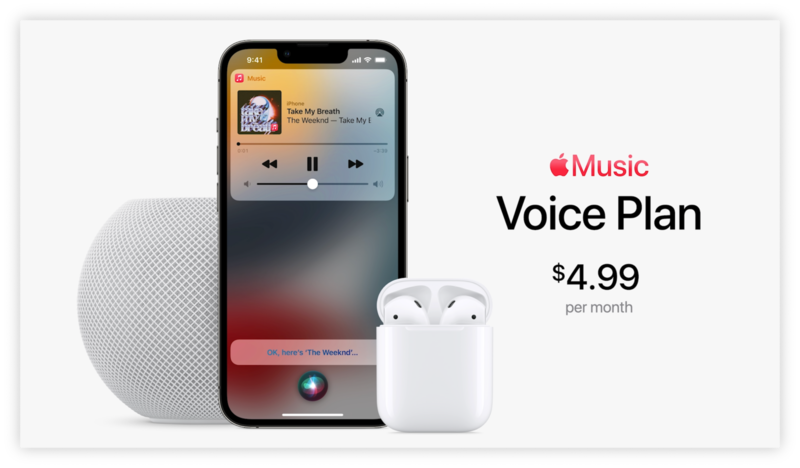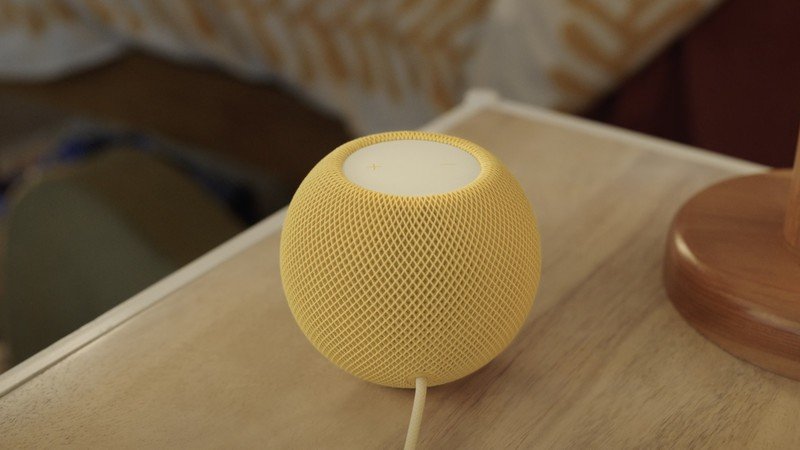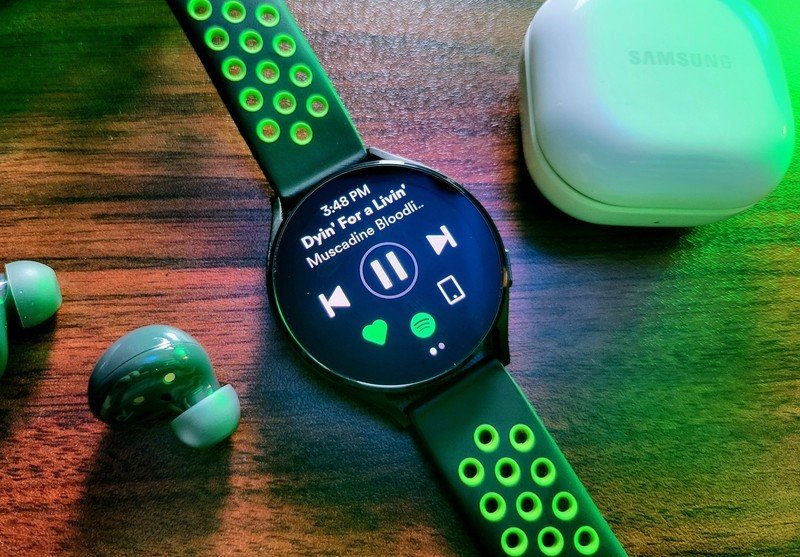Apple Music Voice is Siri meets iPod Shuffle, and other Android music apps are likely to follow suit

Apple made a big splash during Monday's MacBook Pro event. Whatever you think of Apple, its upgraded M1 Pro/ Max silicon looks stunningly powerful, and its 3rd-gen AirPods will be a hit with audiophiles. But the weirdest announcement came right at the start when Apple CEO Tim Cook announced a new, Siri-dependant music streaming option.
Apple Music Voice is a $4.99/month subscription that gives you access to the service's full 90-million-song catalog, ad-free. However, unlike standard Apple Music, you can't use a touchscreen to select or search for songs. Instead, you have to ask Siri to find a song or playlist for you.
You'll get access to "tens of thousands of playlists, including hundreds of brand new mood and activity playlists, personalized mixes, and genre stations; as well as the award-winning Apple Music Radio." But unlike with standard Apple Music, you can't create your own playlists, download music for offline listening, or use the familiar UI. And, of course, Apple Music for Android users can't use it at all since it requires Siri access.

My initial thoughts about Apple Music Voice were, "What? Why? Who would use it?" It reminded me a bit of the iPod Shuffle, a 2005 MP3 player that didn't let you create playlists. Instead, you were limited to either listening to or skipping through your entire library. I never got the appeal. But about 10 million people bought them, and some even like stripped-down, cheaper experience that required less time and effort on their end.
Some people like stripped-down, cheaper services that require little personal effort.
Apple isn't the first company to launch an audio-only music subscription. The Amazon Music Unlimited "Single Device Plan" lets you stream its entire music library for $3.99 per month through an Echo or Fire TV device. This Alexa-powered sub has existed since 2016. Believe it or not, Apple might be making a strategic call by emulating it.
Google Assistant and Alexa have outpaced Siri for years now. Siri has always remained a secondary option behind touchscreen controls, with iPhone owners not using it for complicated tasks. Meanwhile, Amazon leaned into cheap audio-only products so customers would have no choice but to employ Alexa for years, giving it more data to improve it. And Google Assistant had a wider install base internationally, along with Google's search engine for better results.

For Siri to jump up the learning curve, Apple won't be able to magically acquire Android's international audience or Google's search data. But it can emulate Amazon and launch more voice-powered services and products. A cheap music subscription restricted to patient, loyal Apple users — launched across 17 different countries and multiple languages — could fit the bill.
Get the latest news from Android Central, your trusted companion in the world of Android
Apple Music Voice is tailor-made to make Siri smarter. You'll just have to be patient as you tutor it.
It's also going to make Siri smarter via its "personalized mixes." If Apple Music Voice is a 21st-century iPod Shuffle, then it analyzes every time you skip a song or stop listening. For example, when you listen to only your favorite albums, music apps can find "similar" albums but generally have trouble learning your tastes outside of your personal choices. With a service that doesn't let you pick and choose as easily, Apple can build better individual music profiles and improve its AI recs.
Of course, no matter how business-savvy Apple's choice is, I wouldn't recommend anyone actually use Apple Music Voice — unless you're a thrifty HomePod owner, I guess. Siri's voice recognition and response time fall short of its rival assistants, which could lead to some frustration. And I don't want to have to vocally say "Play Industry Baby" or "Play my running playlist" while out in public. But it's not just about Siri or fear of social embarrassment!
Voice-only audio subs are an exercise in patience no matter which voice assistant you use.
Whenever I ask my Echo Show 8 to play a Spotify song or playlist, Alexa will recognize Top 40 songs but flounder with complicated titles, song covers, or podcast episodes. For specific genres like classical music, I need to remember the obscure names and numbers of specific orchestras and concertos, then hope it picks a good recording or performance. It's infinitely easier to search for a song via text and play it over Bluetooth, yet Apple Music Voice would make that impossible.

Why does Apple Music Voice matter to Android users when it's iOS-only? Because you shouldn't be surprised if the other best music streaming services emulate it. Not necessarily the voice assistant part — since most companies don't have the resources to make one — but rather a Pandora-like subscription that focuses on finding your favorites for you in exchange for a lower monthly price. If a Spotify Lite subscription appeared with Daily Mixes built off of your previous listening habits, many people would downgrade to save money.
Also, while there aren't any leaks or rumors to suggest this, I wouldn't be surprised if Google announces its own Assistant-backed subscription for YouTube Music down the line. It's the only one of the Big 3 smart homes that doesn't have a music streaming service specific to its smart speakers like Nest Audio, and it'll want its own cheap, ad-free subscription option to stay competitive. Google could even market it as being smarter and more responsive than the Siri version.
Music apps want you to be dependent on their AI algorithms, not your playlists.
Users think music streaming apps are about listening to whatever they want without ads. But these apps want to be radio stations, learning our likes and dislikes on an individual level. Because you can copy over your playlists manually from one service to the next, but you can't ask an app to export its algorithmic data on you to a competitor. It's about customer retention, first and foremost. Just like the new M1 chips are about keeping Apple customers in that ecosystem.
I don't know how successful Apple Music Voice will be. But it could be the future of music streaming, whether we like it or not.

Michael is Android Central's resident expert on wearables and fitness. Before joining Android Central, he freelanced for years at Techradar, Wareable, Windows Central, and Digital Trends. Channeling his love of running, he established himself as an expert on fitness watches, testing and reviewing models from Garmin, Fitbit, Samsung, Apple, COROS, Polar, Amazfit, Suunto, and more.
